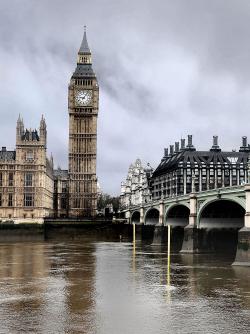A World on the Brink
Is the COVID-19 pandemic a wake-up call? How can you survive the stress and make sense of what is happening in our world today? And who can you turn to for answers?
Every generation has experienced times of extreme stress. My parents lived through the Great Depression and World War II. Their parents lived through World War I and the Spanish Flu. More than 58,000 members of my American generation perished in Vietnam—and this does not include deaths among America’s allies, a million enemy combatants, and another two million poor souls caught in the middle. More than 50,000 American soldiers brought serious injuries back from their service in Iraq and Afghanistan—though the actual death toll was much smaller, due in part to amazing advances in battlefield medicine. Still, compared to what many previous generations have faced, post–World War II life has been pretty good for most of us in the developed world.
Few generations have traveled through life without facing serious challenges. Death, of course, also comes in peaceful times and brings suffering to the dying and grief to their friends and loved ones. None of us can escape questions of life and death, and of whether there is life after death. At some point, this becomes the most important question of all. If you haven’t already, ask for our free booklet What Happens When You Die? You can read it online at TomorrowsWorld.org or request a printed copy from the Regional Office nearest you, listed on page 4 of this magazine.
A Look at This Issue
This issue of Tomorrow’s World understandably focuses on the coronavirus threatening our world. Earlier this year, before COVID-19 concerns had fully blossomed, I took a trip scheduled long before the crisis, bringing me closer to the epicenter of the soon-to-be pandemic than was sometimes comfortable. Once, when someone near my table of four began coughing violently in a nearly empty restaurant, we were definitely alarmed—especially when we learned that he worked in the kitchen! My article in this issue, “Traveling Amidst Masses of Masks,” recounts my personal observations journeying through the Philippines, Thailand, and South Africa as the coronavirus began spreading out of China. I also explain why COVID-19 was totally preventable.
J. Davy Crockett III (yes, he is a descendant of the famous frontiersman who “killed him a bear when he was only three” and died at the Alamo) shares with us a short commentary on page 31, explaining how what we eat played into this current crisis.
In his article on page 18, Editorial Director and longtime Tomorrow’s World telecast presenter Richard F. Ames shows us how leaning on God’s promises can strengthen our courage. Why do we often refuse to turn to God and His revealed word until there is no other hope? As one father said of his son, “He will always do the right thing… after he has tried everything else.” Is there a better time than now to look beyond human solutions and discover the many encouraging promises given to you by your Creator? (I should note that Richard Ames is also the author of the excellent booklet I mentioned earlier.
We are including in this issue an excerpt from Dr. Douglas Winnail’s upcoming booklet on biblical health principles, exploring how infectious diseases wreak havoc around the world, especially in second- and third-world countries. Of course, as we are seeing, sometimes those diseases don’t stay where they begin! Please don’t write in to order this new booklet—we will be sending you a personal invitation very soon, once it is finished!
We often fail to notice how children are deeply affected when the world around them seems to be imploding. I still remember how the Asian flu of 1957–58 impacted my eleven-year-old mind and emotions. Mark Sandor, a father of four, explains how to help our children learn vital lessons in times of crisis. Children value the familiar, and times like these stir questions: Why is school canceled? What’s happening? Are we safe? Our little ones need answers. Mark’s article on page 24 is a must-read for anyone with young children or grandchildren.
The virus itself is not the only story. We are also suffering from one of its side-effects: the financial devastation wrought on our world. This is the subject of Dexter Wakefield’s article on page 26. It may be that COVID-19’s greatest legacy will be its effect on world economies, and how that damage will fuel even greater social contagions and political changes. Future plagues—predicted in prophecy—should be expected to have even more powerful effects. On page 32, Wyatt Ciesielka addresses what’s coming.
On page 16 John Meakin explores the many challenges facing Britain and Europe now that Brexit is a reality—a reality, by the way, that Tomorrow’s World foretold decades in advance on the basis of Bible prophecy, even while many “experts” were skeptical that Britain would ever leave the European Union. Britain and the European Union nations were already straining to manage the complicated fallout of their political divorce, but what will be the end result of these powerful new challenges? Be sure to read the “London Calling” column each issue to keep up with important events in that part of the world. As the COVID-19 pandemic is reminding us, what happens in one part of the world, such as Europe, is of vital concern to people all across the globe.
And how have people reacted to the crisis? One odd element that history will record concerning these days is how the pandemic spread of a disease that attacks the lungs somehow resulted in the Great Toilet Paper Shortage of 2020. For sound reason and spiritual advice concerning the hoarding mindset that emptied our shelves, you will want to read Michael Heykoop’s “Oh Canada!” column beginning on page 10.
A Warning and Wake-Up Call
Increased travel at the time of the Chinese New Year helped COVID-19 spread outside of Wuhan to other parts of China and the world. At that same time, Europe was struggling with the uncertainty surrounding Brexit’s economic and social impact. Australia was reeling from last year’s devastating cycle of drought, fires, and floods, which saw the deaths of a staggering one billion wild animals as well as 600,000 cattle. Waves of economic refugees seek a better life in Europe, and Turkey is not stopping the flow. What can we expect when COVID-19 ravages the economies of Mexico and the nations to its south in Central and South America? Where will their suffering masses go? When these desperate people bring disease to their destination countries, how will they be received?
World events often come together to magnify troubles in times of stress. And those times of stress bring strong—not always good—leaders to the forefront: Vladimir Putin, Recep Erdogan, Xi Jinping, Donald Trump, Benjamin Netanyahu, and others like them.
Every generation has experienced difficulties, but technological advances, the speed of travel, and the population explosion have magnified the size and scope of problems today. The Bible tells us that even more difficult times are ahead, such as we can hardly imagine. COVID-19 should be a wake-up call as to what lies ahead—a relatively small-scale warning to a complacent world of what is to come unless we amend our ways, turn from immoral behaviors, and stop rejecting our Creator. It is no coincidence that our world is being turned upside down at the very time we are turning morality on its head!
Medical breakthroughs, economic stimulus programs, and social distancing may bring temporary relief to our troubled world, but these only treat the effects of our problems—not the causes. Troubles will continue to pile upon troubles until we turn to the only One who can give real solutions. In biblical language, it is time for us individually and collectively to humble ourselves and repent of sin. Any other solution is a mere band-aid being applied to a severed artery.






